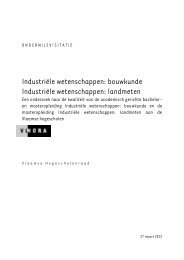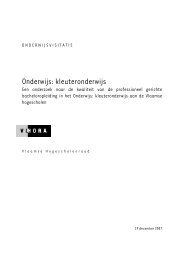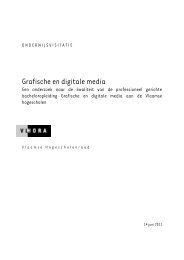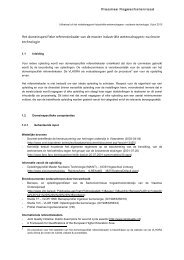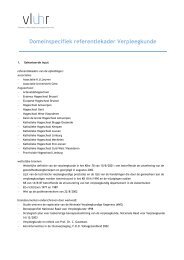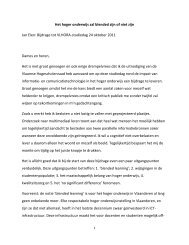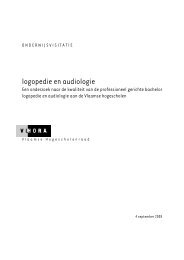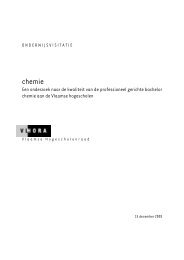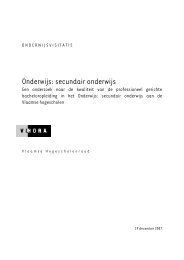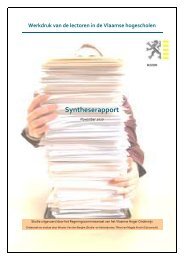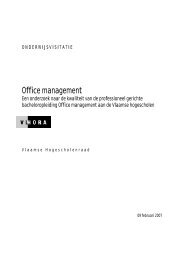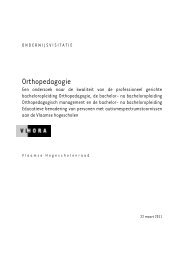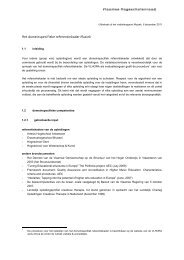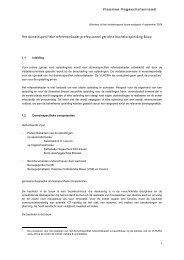Towards a Diversified, Responsive and Competitive European Higher
Towards a Diversified, Responsive and Competitive European Higher
Towards a Diversified, Responsive and Competitive European Higher
Create successful ePaper yourself
Turn your PDF publications into a flip-book with our unique Google optimized e-Paper software.
• proper implementation of Qualifications Frameworks ensures full involvement of students inprogramme design, institutional governance <strong>and</strong> quality assurance. Learning outcomes should bea distinctive feature in the dimension of employability, facilitating students to become responsible<strong>and</strong> active lifelong learners with developed motivation, social skills, capability <strong>and</strong> capacity for selfevaluation,time management skills <strong>and</strong> skills to access information. Qualifications Frameworks areinstruments of transparency, for the defining <strong>and</strong> redefining of curricula, (applied) research <strong>and</strong>institutional management in line with their missions <strong>and</strong> profiles;• qualifications frameworks make it easier to improve national <strong>and</strong> international higher educationalquality <strong>and</strong> quality assurance, <strong>and</strong> also mobility in particular.We therefore urge Ministers to:• promote general wider underst<strong>and</strong>ing <strong>and</strong> awareness of the <strong>European</strong> Qualifications Framework,National Qualifications Frameworks <strong>and</strong> learning outcomes for access, transfer <strong>and</strong> progression inhigher education on national <strong>and</strong> EU level <strong>and</strong> for employability <strong>and</strong> lifelong learning;• ensure that the professional higher-education qualifications are granted full recognition by memberstates <strong>and</strong> all higher-education institutions in the EHEA, in accordance with the QF-EHEA <strong>and</strong>commitments under the Lisbon Recognition;• incorporate innovative labour-market oriented short-cycle higher-education programmes intoNational Qualifications Frameworks <strong>and</strong> ensure appropriate recognition <strong>and</strong> access to further cyclesof higher education for the holders of these qualifications;• highlight the qualifications profile <strong>and</strong> distinctive pedagogic approaches of professional highereducation as features in the global attractiveness of the <strong>European</strong> <strong>Higher</strong> Education Area;• provide <strong>and</strong> support personal development of higher-education institution management <strong>and</strong> staff,exchange of good practice <strong>and</strong> collaboration related to learning outcomes <strong>and</strong> the on-going reflectiveprocess of a student-centred learning approach.We confirm our previous commitment to:• promote the key role of Qualifications Frameworks, learning outcomes across the sector we represent;• strengthen our dialogue with employers <strong>and</strong> the world of work using the Qualifications Frameworks<strong>and</strong> the language of learning outcomes in order to better underst<strong>and</strong> <strong>and</strong> translate their needs <strong>and</strong>expectations towards higher-education outcomes both at systemic <strong>and</strong> institutional level;• provide a platform for sharing best practices <strong>and</strong> seeking inspiration as regards to the potential ofsector- <strong>and</strong>/or profession-specific objectives, methods <strong>and</strong> assessment in higher-education learningwhich would place the students <strong>and</strong> learners into the very centre of the process;• support higher-education institutions who invest in a student-centred learning approach, especiallythose who commit themselves to the link between learning outcomes <strong>and</strong> employability.6



